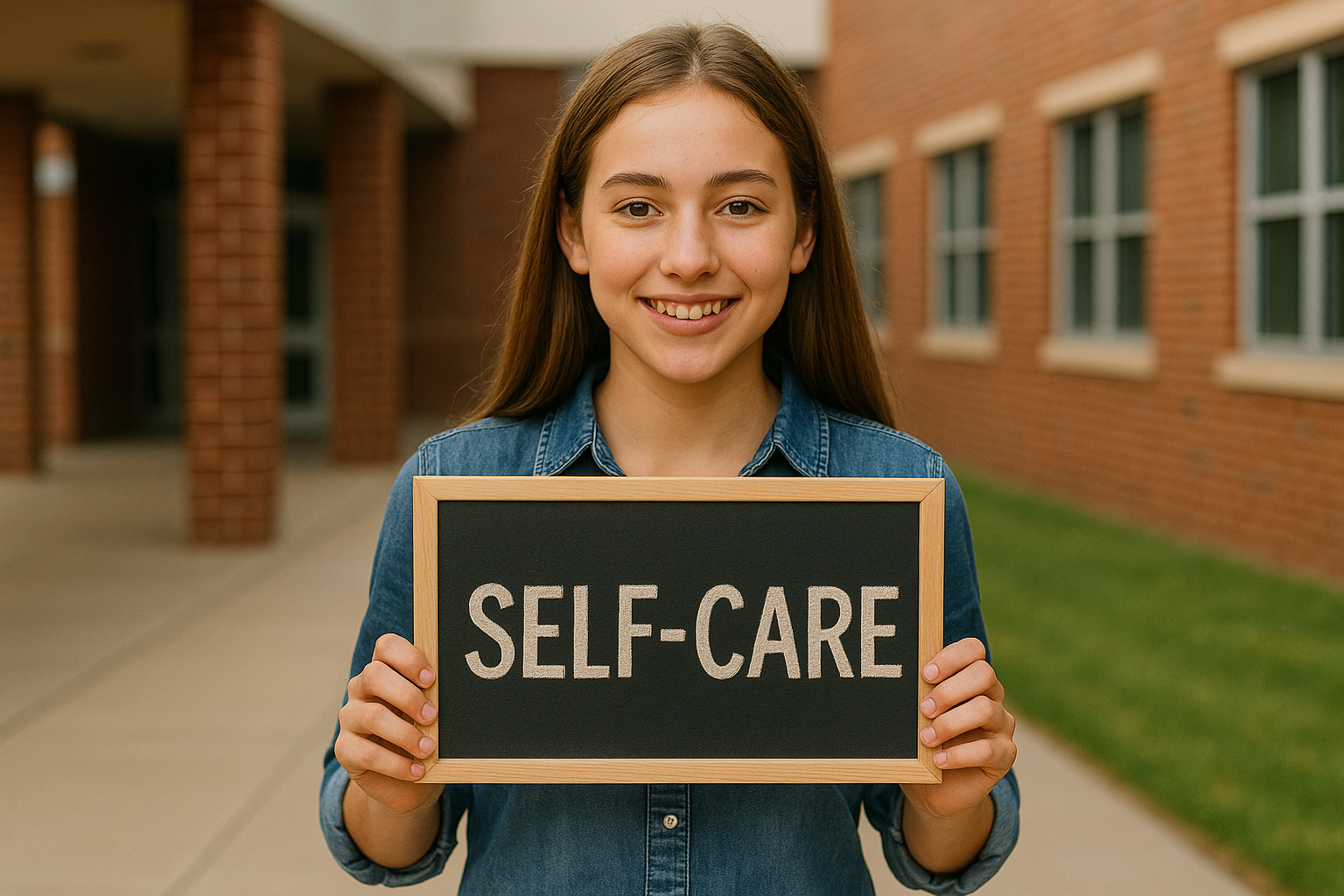Student Self-Care
Written by Arbitrage • 2025-08-15 00:00:00

As a new school year begins, students face different challenges, responsibilities, and expectations. Between classes, assignments, extracurricular activities, and social commitments, it is easy for students to feel overwhelmed and to overlook one crucial element: self-care. Research consistently shows that students who take care of their personal well-being tend to perform better academically and feel more satisfied with their school experience. According to the American Psychological Association (APA), teens who practice consistent self-care (such as getting enough sleep, eating balanced meals, and maintaining social connections) report lower levels of stress and higher levels of resilience.
For many students, finding ways to care for themselves comes through small but intentional habits. Eighth-grader Jayden shared, "When I feel overwhelmed, I take a break and listen to music. It helps me reset without falling behind." Whether it's listening to music or playing music, journaling, crafting, or just sitting quietly for a few moments, creating space to pause is a powerful tool. High school junior Maya added, "I use a planner to keep track of my assignments and downtime. If I don't schedule time for myself, I forget to breathe." Her strategy is backed by studies from the National Institutes of Health (NIH) that link time management with reduced stress and improved academic outcomes in teens. As part of planning and time management, teens need to learn how to break down large tasks into smaller, more manageable steps and how to prioritize their workload. This is a skill that will serve them well into adulthood.
Getting enough sleep is one of the most overlooked needs for middle and high school students. Even though the Centers for Disease Control and Prevention (CDC) recommends at least 8 to 10 hours of sleep per night for teens, many students operate on far less. "I used to stay up really late finishing homework or watching videos," admitted ninth-grader Samuel. "But when I started going to bed earlier, I felt less tired and my grades got better." Quality consistent sleep helps the mind recharge and boosts learning by supporting memory, focus, and emotional regulation - all critical skills for academic success.
Nutrition and movement also play a role in how students feel throughout the day. Skipping breakfast or sitting for long stretches can take a toll, especially during long school hours. Teachers often notice a difference. One middle school science teacher observed, "Students who come in with a good breakfast and some movement in the morning are noticeably more alert and ready to learn." Even brief walks between classes or standing to stretch during homework time can make a difference. A fun way to increase movement during the day is to include exercise or activities as a family. Something like a walk together after dinner, squats and jumping jacks during a commercial break, or learning new yoga poses are easy ways to increase everyone's activity level.
Social well-being is also vital for teens. Maintaining friendships and having trusted people to talk to helps students manage the emotional ups and downs of the school year. Research from Harvard's Center on the Developing Child says that the power of "serve-and-return" relationships (positive interactions with peers and adults) as being essential for healthy emotional development. High school senior Talia reflected on how leaning on her friends helped her through a stressful sophomore year. "We'd just talk after school - about life, classes, anything. It reminded me that I wasn't alone." While being connected to friends is important, there are benefits of taking breaks from screens and social media; spending time offline can be refreshing and help clear the mind.
Research studies have found that altruistic emotions and behaviors are associated with greater well-being, health, and longevity. Basically, it feels good to do good, and it also provides long-term health benefits! Teaching your kids the value of kindness is an important life lesson - and one they are never too young to learn and experience. Try volunteering at a local charity, ask your kids to pick old clothes and toys of theirs to donate, or help at a homeless shelter.
Starting a new school year can feel exciting and overwhelming at the same time. But by being intentional about how they care for themselves (mentally, physically, socially, and emotionally), students can set the stage for a healthier and more balanced year. As middle schooler Jalen put it: "Self-care isn't just about bubble baths or spa days. It's about knowing when you need a break, and not feeling bad for taking one." That kind of wisdom can go a long way in helping students handle the demands of school life with balance and resilience.